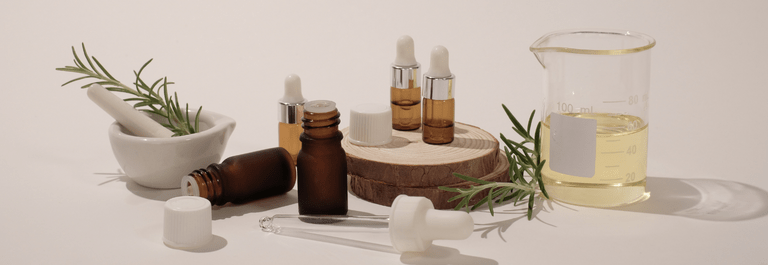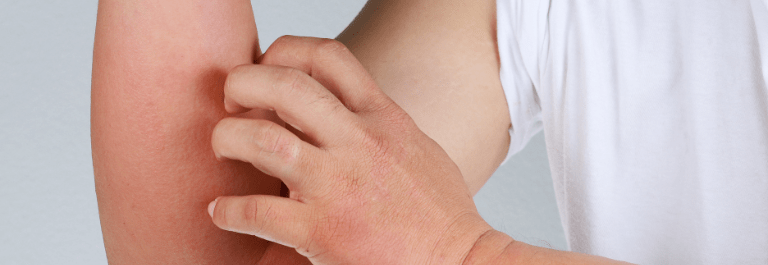Varicose eczema is one of the many different types of eczema. It tends to be a long-term problem. If left untreated, it can lead to ulcers. It’s also known as venous, gravitational, or stasis eczema. Read on to learn more about varicose eczema and what you can do about it.
Please keep in mind that although these tips and information have worked for several sufferers, we are in no way medical professionals. If you’re experiencing severe symptoms or have a topical infection, it is always best to seek medical advice immediately.
What is Varicose Eczema?
Varicose eczema is a common condition that affects approximately 70% of people over 70. It usually affects the lower legs, resulting from poor circulation. Symptoms of varicose eczema include itchy, swollen, dry, flaky, and crusty skin. The legs are more likely to become swollen at the end of the day or after standing for prolonged periods. When swollen and enlarged veins are visible, it’s a sign of eczema from varicose veins. As with all types of eczema, there may be periods where symptoms are not noticeable and others where they are more severe.
What Causes Varicose Eczema?
Varicose eczema results from poor circulation, leading to a build-up of pressure as the blood attempts to flow upward through the body and heart. This pressure causes the fluid to weep out of the vein and into the skin. This results in dry, flaky, inflamed, and itchy skin on the lower legs. The skin may also change color, crack or weep. Calf tenderness is also common.
Who Gets Varicose Eczema?
As we mentioned, varicose eczema is more likely to affect adults over 70. If you are overweight or have high blood pressure, you are also more likely to suffer from this type of eczema. Females are more likely to experience varicose eczema than men, with women who have had several pregnancies at even higher risk.
Lifestyle factors such as sitting for long periods or lack of exercise can also increase the risk of developing varicose eczema.
Treating Varicose Eczema Naturally
Keep Skin Hydrated
To combat dry, itchy, and flaky skin of varicose veins, we recommend keeping the skin well moisturized with a natural beef tallow cream. You should aim to apply a natural moisturizer at least twice a day, typically morning and night. Of course, you can’t go wrong with our Organic Manuka Skin Soothing cream.
Created with just six wholesome ingredients, it was made with sensitive skin in mind. Its soft, buttery texture makes it a real treat for irritated skin.
Exercise
Exercising is essential to maintaining a healthy lifestyle but particularly beneficial to those with varicose eczema. To get your blood pumping, we recommend keeping your legs moving.
Some great exercises for varicose eczema include walking and swimming. Even simple lifestyle changes like taking the stairs instead of the elevator can make a big difference. In general, you want to avoid standing for long periods. If your job requires this of you, try to bend down at the knee every so often or flex your feet when you can. You can also try elevating your legs to help with blood flow.
Protect the Skin
Keep irritated skin protected with our soft and soothing eczema pants for adults and kids. Made with TENCEL and embedded with anti-inflammatory zinc, these breathable pants protect the skin from scratching and boost the healing process. In addition, thanks to their form-fitting design, you can wear them underneath regular clothes without any added bulk.
If you're struggling to sleep at night, these 100% Organic Cotton Adult Pajamas Pant for Eczema are a soothing choice. They're made with gentle cotton and feature soft flat seams inside and out for comfort.
Shower with Soothing Soaps
The eczema soap you use can be the difference between clear skin and a bad flare-up. First, you want to find a soap that doesn’t strip the skin of its natural oils. We recommend this Grass Fed Tallow soap because it’s as natural as they come. It’s highly moisturizing and nourishing, making it a perfect choice for those with sensitive or dry skin.



